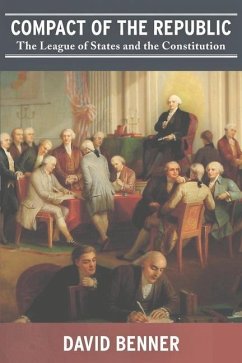The United States Constitution was a concerted response to an age of tyrannical kings and highly centralized government. As history reveals, such political authority had to be challenged directly - by local units and causes - to preserve liberty and ensure public happiness. Compact of the Republic demonstrates that the Constitution did not impose a nationalist, superlative central government, and was not ratified by "one American people" in the aggregate. Instead, the document was the product of a multi-party arrangement, where the states remained the masters of their own creation and the pillars of the federal system. In Compact of the Republic, historian David Benner: *Reveals that representatives were assured that delegated power could be reclaimed by the states following acts of federal overreach and usurpation *Explains the historical foundation behind the Bill of Rights, and traces the limitations on government to the actions of malevolent kings *Proves the Constitution acknowledges the states in the plural, as a collection of sovereign societies with varied interests *Demonstrates that the "elastic clauses" were clearly explained during the ratification campaign, and leave no room for modern reinterpretation *Describes how the federal judiciary now overturns state laws it has no jurisdiction over, to the contrary of its original scope of power *Explains why Thomas Jefferson and James Madison believed that unconstitutional federal laws had to be opposed, nullified, and obstructed by the states *Illustrates that ratification was secured only by convincing opponents of the Constitution that the document would produce a nominal general government with limited, enumerated powers
Hinweis: Dieser Artikel kann nur an eine deutsche Lieferadresse ausgeliefert werden.
Hinweis: Dieser Artikel kann nur an eine deutsche Lieferadresse ausgeliefert werden.







![The League of the Iroquois, and Other Poems From the Indian Muse [microform] The League of the Iroquois, and Other Poems From the Indian Muse [microform]](https://bilder.buecher.de/produkte/65/65559/65559763m.jpg)